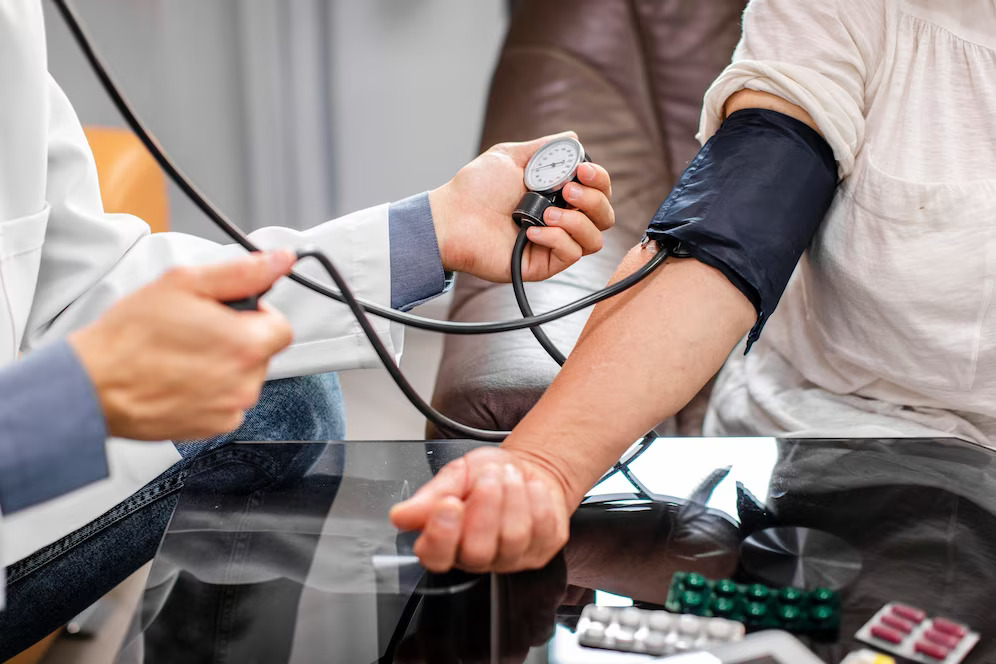High blood pressure, also known as hypertension, is a prevalent but often silent medical condition that can have serious health implications if left unchecked. While it’s often referred to as the “silent killer” because it can develop without noticeable symptoms, there are warning signs that should not be ignored. In this article, we’ll explore ten crucial warning signs of high blood pressure, why early detection is vital, and what you can do to protect your health.
What is High Blood Pressure?
High blood pressure is a medical condition characterized by the force of blood against the walls of your arteries being consistently too high. It’s typically measured in millimeters of mercury (mm Hg) and expressed as two values: systolic (the pressure when the heart beats) and diastolic (the pressure when the heart rests between beats). A normal blood pressure reading is typically around 120/80 mm Hg.
The Silent Killer
High blood pressure often earns the nickname “silent killer” because it can develop gradually over time without causing noticeable symptoms. This means that many individuals may have high blood pressure without even realizing it. Unfortunately, untreated high blood pressure can lead to severe health problems, including heart disease, stroke, and kidney damage.
Warning Sign 1: Persistent Headaches
One warning sign of high blood pressure is persistent headaches. While occasional headaches are common and can have various causes, persistent, pounding headaches that occur frequently should raise concern. If you’re experiencing severe and recurrent headaches, it’s essential to consult a healthcare professional for a blood pressure evaluation.
Warning Sign 2: Shortness of Breath
Feeling short of breath during physical activity or even at rest can be a sign of high blood pressure. It’s important to differentiate between normal breathlessness after strenuous exercise and unexplained, persistent shortness of breath. If you’re experiencing the latter, it’s time to get your blood pressure checked.
Warning Sign 3: Vision Problems
Changes in vision, such as blurred vision or difficulty focusing, can be linked to high blood pressure. The increased pressure can affect the blood vessels in the eyes, leading to vision problems. Regular eye check-ups can help detect any issues related to your blood pressure and eye health.
Warning Sign 4: Chest Pain
Chest pain is a symptom that can have various causes, including high blood pressure. While not all chest pain is related to hypertension, it’s essential to pay attention to any chest discomfort, especially if it’s accompanied by other warning signs like shortness of breath or dizziness.
Warning Sign 5: Irregular Heartbeat
An irregular heartbeat, or palpitations, can be a sign of high blood pressure. High blood pressure can disrupt the normal rhythm of the heart, leading to palpitations. If you’re experiencing frequent irregular heartbeats, it’s crucial to seek medical advice promptly.
Warning Sign 6: Fatigue
Persistent fatigue or unexplained tiredness can be a subtle but significant sign of high blood pressure. This fatigue can impact your daily life and productivity. Lifestyle changes, such as a healthier diet and regular exercise, can help combat this symptom.
Warning Sign 7: Nosebleeds
Contrary to common belief, frequent nosebleeds are not always a direct sign of high blood pressure. However, in some cases, high blood pressure can contribute to nosebleeds. If you’re experiencing frequent nosebleeds, consult with a healthcare professional to determine the underlying cause.
Warning Sign 8: Dizziness
Dizziness can be associated with high blood pressure, especially when it’s sudden and severe. If you experience recurring dizzy spells, especially if they’re accompanied by other warning signs, it’s important to seek medical attention to rule out any serious issues.
Warning Sign 9: Swelling
Swelling, particularly in the legs and ankles, can be linked to high blood pressure. This occurs because high blood pressure can cause fluid retention in the body’s tissues. Dietary changes, such as reducing salt intake, and lifestyle modifications can help alleviate this symptom.
Warning Sign 10: Blood in Urine
Hematuria, or blood in the urine, can be a sign of underlying health problems, including high blood pressure. If you notice blood in your urine, even if it’s not accompanied by pain, it’s essential to consult a healthcare professional for a thorough evaluation.
Risk Factors for High Blood Pressure
Several risk factors can increase your likelihood of developing high blood pressure. These include genetics, age, lifestyle choices, and certain medical conditions. Understanding these risk factors can help you take proactive steps to manage your blood pressure.
Prevention and Management
Preventing high blood pressure involves making healthy lifestyle choices, such as maintaining a balanced diet, engaging in regular physical activity, managing stress, and avoiding excessive alcohol and tobacco use. For some individuals, medication may be necessary to control their blood pressure effectively.
The Importance of Regular Check-ups
Regular blood pressure monitoring is crucial, even if you feel perfectly healthy. Early detection of high blood pressure allows for timely intervention, reducing the risk of complications. Make it a habit to schedule regular check-ups with your healthcare provider.
Living with High Blood Pressure
If you receive a high blood pressure diagnosis, don’t despair. Many individuals successfully manage their condition with medication and lifestyle changes. Seek support from healthcare professionals, and consider joining support groups to connect with others facing similar challenges.
In conclusion, high blood pressure is a serious medical condition that often develops without noticeable symptoms. However, there are warning signs, such as persistent headaches, shortness of breath, and vision problems, that should not be ignored. Early detection through regular check-ups is crucial for preventing the potentially severe consequences of untreated high blood pressure. Take charge of your health, monitor your blood pressure regularly, and consult with healthcare professionals if you experience any warning signs. Your well-being depends on it.

David M is a seasoned author renowned for his expertise in health tips and homemade remedies. With a passion for wellness, he diligently researches and meticulously analyzes a plethora of online resources, ensuring their credibility. David’s dedication shines through as he curates invaluable information, catering to health enthusiasts.










